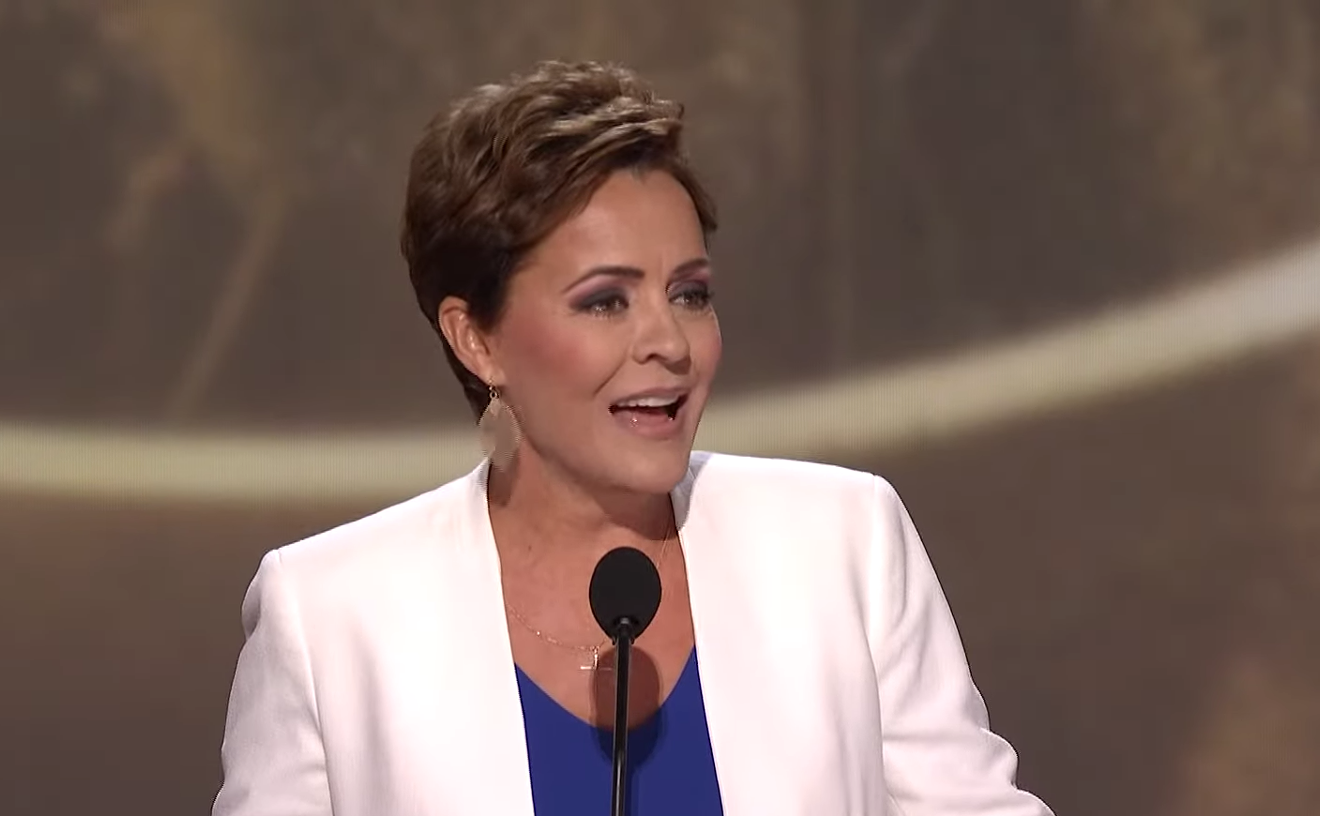What did the U. S. Securities and Exchange Commission say about Tom Horne, the Republican candidate for Arizona Attorney General?
On August 20, 1973, after conducting several years of investigation into Tom Horne, the Securities and Exchange Commission came to the conclusion that "it is in the public interest to revoke the broker-dealer registration of T.C. Horne & Co., Inc. The SEC consequently ordered "that Thomas C. Horne be, and he hereby is, barred from association with any broker, dealer, investment adviser or registered investment company."
Horne didn't admit guilt but did consent to "findings of violations as alleged in SEC order and to the entry of an order barring him from association with any broker-dealer, investment adviser or registered investment company." Horne's ban from the investment industry was for life.
The SEC found, and Horne did not dispute, "that during the period from on or about December 1, 1969, to May 4, 1970, Horne willfully aided and abetted in violations" involving submitting a false report and failing to make and keep accurate and current certain books and records. He also "effected and attempted to induce the purchase and sale of securities" that did not have the required net capital and impliedly represented to customers that it, Horne and Co., Inc., was able to conduct business when in fact it was unable to consummate purchase and sell orders.
A February 14, 1973 SEC document, release Number 10008, said "Horne, among other things, (a) failed accurately to make and keep current certain books and records, (b) violated the anti-fraud provisions of the Federal securities laws, (c) filed false financial reports with the Commission."
It doesn't take a degree from Harvard Law School to understand that Horne committed a big no-no. But certainly Horne - who does have a Harvard Law degree - had no excuse not to know he was breaking the law and putting his clients at risk.
Horne recently has told media outlets his SEC legal problems stemmed from his attempts to enter into early-on computerization and that he got in over his head while working his way though law school. The SEC report said Horne had business operations in Massachusetts, New York, Kentucky, and Washington, D.C.
Horne graduated from law school and went bankrupt in 1970 and moved to Arizona a couple of years later.
It's now been reported that Horne failed to list the fact he had a bankruptcy in public documents filed with the Arizona Corporation Commission from 1997 to 2002.
The AG candidate told a local paper he probably made this omission because the bankruptcy happened long ago. Horne said, "I didn't think about it because it was 40 years ago," he told the paper. Actually it was only 27 years ago since his bankruptcy when he first failed to fill in the blanks accurately at the ACC.
An ACC representative said, "Errors on companies' annual reports can be referred to the Arizona attorney general for investigation."
Failing to accurately fill out a public record can be a class 6 felony. If Horne were to be elected AG, could he be asked to investigate himself?
We would have thought with his first-class legal education, a past serious run-in with the SEC and its lifetime reminder, and decades as a lawyer and elected official, Horne would have learned to fill out a government forms completely and accurately.
Horne has pooh-poohed his past legal difficulties with the government. Unfortunately when the state and federal governments use terms like "barred," "false financial reports," "errors on reports" and "fraud" (yes, even fraud) to describe his past professional conduct, is Horne what Arizona needs for its chief legal officer?
See the SEC documents below:
SECURITIES AND EXCHANGE COMMISSION
LITIGATION Release No. 5048
June 17, 1971
Floyd H. Gilbert, Administrator of the Boston Regional Office today announced that on June 16, 1971 the Honorable Andrew A. Caffrey, U.S. District Judge for the District of Massachusetts, signed a Permanent Injunction enjoining T. C. Horne & Company, Incorporated, and Thomas C. Horne from further violations of the Commission's net capital and bookkeeping rules. The defendants consented to the entry of the decree. The Commission had instituted this action by a Complaint filed on June 5, 1970.
T. C. Horne & Company, Incorporated, is a broker-dealer with its principal offices at 1384 Massachusetts Avenue, Cambridge, Massachusetts. Thomas C. Horne is the president, director and principal stockholder of T. C. Horne & Company, Incorporated.
The Affidavit filed in support of the Commission's Complaint alleged that T. C. Horne & Company, Incorporated, had failed to maintain its books and records in a current condition and had permitted the aggregate indebtedness to T. C. Horne & Company, Incorporated, to all persons to exceed 2,000 per centum of its net capital and that Thomas C. Horne has aided and abetted T. C. Horne & Company, Incorporated, in these violations.
SECURITIES AND EXCHANGE COMMISSION
LITIGATION Release No. 4632
June 9, 1970
Floyd H. Gilbert, Administrator of the Boston Regional Office, today announced that on June 8, 1970 the Honorable Andrew A. Caffrey, U.S. District Judge for the District of Massachusetts, granted, after hearing, the Commission's request for a Preliminary Injunction enjoining T. C. Horne & Company, Incorporated, and Thomas C. Horne from further violations of the Commission's net capital and bookkeeping rules. Judge Caffrey appointed Cornelius J. Moynihan, Jr., Esquire, 70 Federal Street, Boston, Massachusetts, as temporary receiver for T. C. Horne & Company, Incorporated. The Commission had instituted this action by a Complaint filed on June 5, 1970.
T. C. Horne & Company, Incorporated, is a broker-dealer with its principal offices at 1384 Massachusetts Avenue, Cambridge, Massachusetts. Thomas C. Horne is the president, director and principal stockholder of T. C. Horne & Company, Incorporated.
The Affidavit filed in support of the Commission's Complaint alleged that T. C. Horne & Company, Incorporated, had failed to maintain its books and records in a current condition and had permitted the aggregate indebtedness of T. C. Horne & Company, Incorporated, to all persons to exceed [*2] 2,000 per centum of its net capital and that Thomas C. Horne had aided and abetted T. C. Horne & Company, Incorporated, in these violations.
In the Matter of T.C. HORNE & CO., INC. Boston, Massachusetts; THOMAS C. HORNE
Admin. Proc. File No. 3-4158; (8-14675)
SECURITIES AND EXCHANGE COMMISSION
SECURITIES EXCHANGE ACT OF 1934, Release No. 10350
August 20, 1973
FINDINGS AND ORDER IMPOSING REMEDIAL SANCTIONS
In these broker-dealer proceedings under the Securities Exchange Act, T.C. Horne & Co., Inc., a registered broker-dealer, failed to file an answer as required by the order for proceedings. Rule 7(e) of the Commission's Rules of Practice provides that upon such failure a respondent shall be deemed in default and the proceedings may be determined against it upon consideration of the order for proceedings, the allegations of which may be deemed true as to it. n1
n1 Registrant has been adjudicated a bankrupt; the trustee in bankruptcy has stated that he does not intend to answer the order for proceedings and does not oppose revocation of registrant's broker-dealer registration.
Also in these proceedings, Thomas C. Horne, formerly registrant's president, has filed a stipulation and consent. Solely for the purpose of these proceedings and without admitting or denying the allegations in the order for proceedings, Horne consented to findings of violations as alleged in that order and to the entry of an order barring him from association with any broker-dealer, investment adviser or registered investment company.
On the basis of the [*2] order for proceedings, registrant's default and Horne's consent, it is found that during the period from on or about December 1, 1969, to May 4, 1970, registrant willfully violated and Horne willfully aided and abetted in violations of:
1. Sections 15(b)(5)(A) and 17(a) of the Exchange Act and Rule 17a-3 thereunder in that registrant submitted a false trial balance and report, and failed to make and keep accurate and current certain books and records;
2. Section 15(c)(3) of the Exchange Act and Rule 15c3-1 thereunder in that registrant effected and attempted to induce the purchase and sale of securities when it did not have the required net capital; and
3. Section 17(a) of the Securities Act and Section 10(b) of the Exchange Act and Rule 10b-5 thereunder in that registrant impliedly represented to customers that it was able to conduct business when in fact it was unable to consummate purchase and sell orders.
In view of the foregoing, it is in the public interest to revoke the broker-dealer registration of T.C. Horne & Co., Inc. and to impose the sanctions specified in Thomas C. Horne's stipulation and consent.
Accordingly, IT IS ORDERED that the registration as a broker and [*3] dealer of T.C. Horne & Co., Inc. be, and it hereby is, revoked, and that Thomas C. Horne be, and he hereby is, barred from association with any broker, dealer, investment adviser or registered investment company.
For the Commission, by the Office of Opinions and Review, pursuant to delegated authority.
SECURITIES AND EXCHANGE COMMISSION
SECURITIES EXCHANGE ACT OF 1934
Release No. 10008
February 14, 1973
The Securities and Exchange Commission has ordered public administrative proceedings under the Securities Exchange Act of 1934 against T.C. Horne & Co., Inc. ("Horne & Co."), a broker-dealer, whose principal place of business was formerly at 1384 Massachusetts Avenue, Cambridge, Massachusetts, and Thomas C. Horne ("Horne"), president of Horne & Co., which formerly maintained branch offices in New York City, New York; Louisville, Kentucky and Washington, D.C., was adjudicated a bankrupt on November 12, 1970. Horne presently is residing in Phoenix, Arizona.
The proceedings are based upon staff allegations that during the period from on or about December 1, 1969 to on or about May 4, 1970 Horne & Co., aided and abetted by Horne, among other things, (a) failed accurately to make and keep current certain books and records, (b) violated the anti-fraud provisions of the Federal securities laws in that they impliedly represented to customers that Horne & Co., was able to consummate purchase and sell orders or deliver the securities promptly, (c) filed false financial reports with the Commission and (d) violated the broker-dealer net capital provisions of the Act in that Horne & Co., made [*2] use of the mails and interstate commerce to induce the purchase and sale of securities when its aggregate indebtedness to all other persons exceeded 2,000% of its net capital.
A hearing will be scheduled by further order to take evidence on the staff allegations and to afford respondents an opportunity to offer any defenses thereto, for the purpose of determining whether the allegations are true, and if so, whether any action of a remedial nature should be ordered by the Commission.










